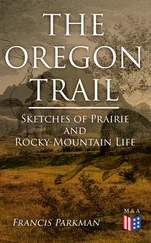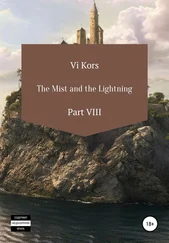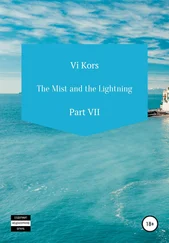Francis Parkman - France and England in N America, Part VII, Vol 1 - A Half-Century of Conflict
Здесь есть возможность читать онлайн «Francis Parkman - France and England in N America, Part VII, Vol 1 - A Half-Century of Conflict» — ознакомительный отрывок электронной книги совершенно бесплатно, а после прочтения отрывка купить полную версию. В некоторых случаях можно слушать аудио, скачать через торрент в формате fb2 и присутствует краткое содержание. Жанр: foreign_prose, История, foreign_edu, foreign_antique, на английском языке. Описание произведения, (предисловие) а так же отзывы посетителей доступны на портале библиотеки ЛибКат.
- Название:France and England in N America, Part VII, Vol 1: A Half-Century of Conflict
- Автор:
- Жанр:
- Год:неизвестен
- ISBN:нет данных
- Рейтинг книги:3 / 5. Голосов: 1
-
Избранное:Добавить в избранное
- Отзывы:
-
Ваша оценка:
- 60
- 1
- 2
- 3
- 4
- 5
France and England in N America, Part VII, Vol 1: A Half-Century of Conflict: краткое содержание, описание и аннотация
Предлагаем к чтению аннотацию, описание, краткое содержание или предисловие (зависит от того, что написал сам автор книги «France and England in N America, Part VII, Vol 1: A Half-Century of Conflict»). Если вы не нашли необходимую информацию о книге — напишите в комментариях, мы постараемся отыскать её.
France and England in N America, Part VII, Vol 1: A Half-Century of Conflict — читать онлайн ознакомительный отрывок
Ниже представлен текст книги, разбитый по страницам. Система сохранения места последней прочитанной страницы, позволяет с удобством читать онлайн бесплатно книгу «France and England in N America, Part VII, Vol 1: A Half-Century of Conflict», без необходимости каждый раз заново искать на чём Вы остановились. Поставьте закладку, и сможете в любой момент перейти на страницу, на которой закончили чтение.
Интервал:
Закладка:
Believing that, as usual, the attack came from some small scalping-party, Elisha Plaisted and eight or ten more threw themselves on the horses that stood saddled before the house, and galloped across the fields in the direction of the firing; while others ran to cut off the enemy's retreat. A volley was presently heard, and several of the party were seen running back towards the house. Elisha Plaisted and his companions had fallen into an ambuscade of two hundred Indians. One or more of them were shot, and the unfortunate bridegroom was captured. The distress of his young wife, who was but eighteen, may be imagined.
Two companies of armed men in the pay of Massachusetts were then in Wells, and some of them had come to the wedding. Seventy marksmen went to meet the Indians, who ensconced themselves in the edge of the forest, whence they could not be dislodged. There was some desultory firing, and one of the combatants was killed on each side, after which the whites gave up the attack, and Lieutenant Banks went forward with a flag of truce, in the hope of ransoming the prisoners. He was met by six chiefs, among whom were two noted Indians of his acquaintance, Bomazeen and Captain Nathaniel. They well knew that the living Plaisted was worth more than his scalp; and though they would not come to terms at once, they promised to meet the English at Richmond's Island in a few days and give up both him and Tucker on payment of a sufficient ransom. The flag of truce was respected, and Banks came back safe, bringing a hasty note to the elder Plaisted from his captive son. This note now lies before me, and it runs thus, in the dutiful formality of the olden time:—
Sir,—I am in the hands of a great many Indians, with which there is six captains. They say that what they will have for me is 50 pounds, and thirty pounds for Tucker, my fellow prisoner, in good goods, as broadcloth, some provisions, some tobacco pipes, Pomisstone [pumice-stone], stockings, and a little of all things. If you will, come to Richmond's Island in 5 days at farthest, for here is 200 Indians, and they belong to Canada.
If you do not come in 5 days, you will not see me, for Captain Nathaniel the Indian will not stay no longer, for the Canada Indians is not willing for to sell me. Pray, Sir, don't fail, for they have given me one day, for the days were but 4 at first. Give my kind love to my dear wife. This from your dutiful son till death,
Elisha Plaisted.
The alarm being spread and a sufficient number of men mustered, they set out to attack the enemy and recover the prisoners by force; but not an Indian could be found.
Bomazeen and Captain Nathaniel were true to the rendezvous; in due time Elisha Plaisted was ransomed and restored to his bride. 52 52 On this affair, see the note of Elisha Plaisted in Massachusetts Archives; Richard Waldron to Governor Dudley, Portsmouth, 19 September, 1712 ; Bourne, Wells and Kennebunk , 278.
CHAPTER IV
Hertel de Rouville.—A Frontier Village.—Rev. John Williams.—The Surprise.—Defence of the Stebbins House.—Attempted Rescue.—The Meadow Fight.—The Captives.—The Northward March.—Mrs. Williams killed.—The Minister's Journey.—Kindness of Canadians.—A Stubborn Heretic.—Eunice Williams.—Converted Captives.—John Sheldon's Mission.—Exchange of Prisoners.—An English Squaw.—The Gill Family
About midwinter the governor of Canada sent another large war-party against the New England border. The object of attack was an unoffending hamlet, that from its position could never be a menace to the French, and the destruction of which could profit them nothing. The aim of the enterprise was not military, but political. "I have sent no war-party towards Albany," writes Vaudreuil, "because we must do nothing that might cause a rupture between us and the Iroquois; but we must keep things astir in the direction of Boston, or else the Abenakis will declare for the English." In short, the object was fully to commit these savages to hostility against New England, and convince them at the same time that the French would back their quarrel. 53 53 Vaudreuil au Ministre, 14 Novembre, 1703 ; Ibid., 3 Avril, 1704 ; Vaudreuil et Beauharnois au Ministre 17 Novembre, 1704 . French writers say that the English surprised and killed some of the Abenakis, who thereupon asked help from Canada. This perhaps refers to the expeditions of Colonel March and Captain Tyng, who, after the bloody attacks upon the settlements of Maine, made reprisal upon Abenaki camps.
The party consisted, according to French accounts, of fifty Canadians and two hundred Abenakis and Caughnawagas,—the latter of whom, while trading constantly with Albany, were rarely averse to a raid against Massachusetts or New Hampshire. 54 54 English accounts make the whole number 342.
The command was given to the younger Hertel de Rouville, who was accompanied by four of his brothers. They began their march in the depth of winter, journeyed nearly three hundred miles on snow-shoes through the forest, and approached their destination on the afternoon of the twenty-eighth of February, 1704. It was the village of Deerfield, which then formed the extreme northwestern frontier of Massachusetts,—its feeble neighbor, the infant settlement of Northfield, a little higher up the Connecticut, having been abandoned during the last war. Rouville halted his followers at a place now called Petty's Plain, two miles from the village; and here, under the shelter of a pine forest, they all lay hidden, shivering with cold,—for they dared not make fires,—and hungry as wolves, for their provisions were spent. Though their numbers, by the lowest account, were nearly equal to the whole population of Deerfield,—men, women, and children,—they had no thought of an open attack, but trusted to darkness and surprise for an easy victory.
Deerfield stood on a plateau above the river meadows, and the houses—forty-one in all—were chiefly along the road towards the villages of Hadley and Hatfield, a few miles distant. In the middle of the place, on a rising ground called Meeting-house Hill, was a small square wooden meeting-house. This, with about fifteen private houses, besides barns and sheds, was enclosed by a fence of palisades eight feet high, flanked by "mounts," or blockhouses, at two or more of the corners. The four sides of this palisaded enclosure, which was called the fort, measured in all no less than two hundred and two rods, and within it lived some of the principal inhabitants of the village, of which it formed the centre or citadel. Chief among its inmates was John Williams, the minister, a man of character and education, who, after graduating at Harvard, had come to Deerfield when it was still suffering under the ruinous effects of King Philip's War, and entered on his ministry with a salary of sixty pounds in depreciated New England currency, payable, not in money, but in wheat, Indian-corn, and pork. 55 55 Stephen W. Williams, Biographical Memoir of Rev. John Williams .
His parishioners built him a house, he married, and had now eight children, one of whom was absent with friends at Hadley. 56 56 Account of y e destruction at Deref d , February 29, 1703/4.
His next neighbor was Benoni Stebbins, sergeant in the county militia, who lived a few rods from the meeting-house. About fifty yards distant, and near the northwest angle of the enclosure, stood the house of Ensign John Sheldon, a framed building, one of the largest in the village, and, like that of Stebbins, made bullet-proof by a layer of bricks between the outer and inner sheathing, while its small windows and its projecting upper story also helped to make it defensible.
The space enclosed by the palisade, though much too large for effective defence, served in time of alarm as an asylum for the inhabitants outside, whose houses were scattered,—some on the north towards the hidden enemy, and some on the south towards Hadley and Hatfield. Among those on the south side was that of the militia captain, Jonathan Wells, which had a palisade of its own, and, like the so-called fort, served as an asylum for the neighbors.
Читать дальшеИнтервал:
Закладка:
Похожие книги на «France and England in N America, Part VII, Vol 1: A Half-Century of Conflict»
Представляем Вашему вниманию похожие книги на «France and England in N America, Part VII, Vol 1: A Half-Century of Conflict» списком для выбора. Мы отобрали схожую по названию и смыслу литературу в надежде предоставить читателям больше вариантов отыскать новые, интересные, ещё непрочитанные произведения.
Обсуждение, отзывы о книге «France and England in N America, Part VII, Vol 1: A Half-Century of Conflict» и просто собственные мнения читателей. Оставьте ваши комментарии, напишите, что Вы думаете о произведении, его смысле или главных героях. Укажите что конкретно понравилось, а что нет, и почему Вы так считаете.












